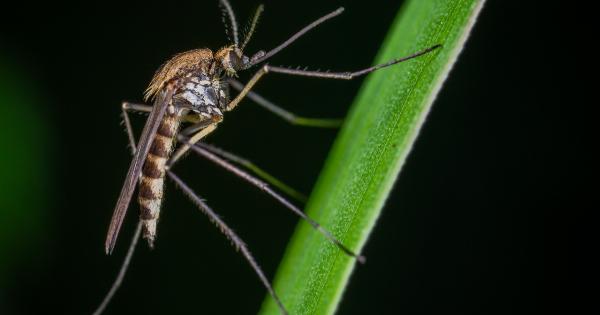Zika virus is a mosquito-borne disease that made global headlines in recent years. First discovered in Uganda in 1947, it has now spread to various parts of the world, causing public health concerns.
In this article, we will explore what you need to know about Zika, including how it spreads, its symptoms, and the vulnerable populations.
What is Zika?
Zika virus is an infectious disease caused by the Zika virus. The disease is transmitted by the Aedes aegypti mosquito, also responsible for the spread of dengue fever, chikungunya, and yellow fever.
Zika can also spread via sexual transmission, mother to child (during pregnancy, childbirth or breastfeeding), and blood transfusions.
Symptoms of Zika
Zika symptoms are often mild and include fever, rash, muscle and joint pain, and headache.
However, about one in five people infected with the virus will develop more severe symptoms such as conjunctivitis (red eyes), swelling of the limbs, and neurological complications such as Guillain-Barré syndrome.
Vulnerable Populations
Pregnant women are particularly vulnerable to Zika as the virus can be passed from the mother to the fetus, which can lead to microcephaly (a birth defect where a baby’s head is smaller than expected) and other severe brain anomalies.
Pregnant women should avoid travel to areas with a known Zika outbreak and take preventive measures to avoid mosquito bites if they live or travel to areas with active Zika transmission. People with weakened immune systems (such as HIV patients or those undergoing chemotherapy) are also at higher risk of severe complications from Zika.
Transmission of Zika
Zika virus is primarily transmitted by the bite of an infected Aedes mosquito. The mosquito becomes infected with the virus when it feeds on a person infected with Zika. Once infected, the mosquito can then spread the virus to other people it bites.
The virus can also be transmitted through sexual contact with an infected person, even if that person does not have any symptoms of the disease.
Preventing Zika
The most effective way to prevent Zika virus infection is to avoid being bitten by mosquitoes. This can be done by wearing long-sleeved shirts and pants, using insect repellent, and avoiding outdoor activities during peak mosquito hours.
Travellers should also check for any Zika advisories before travelling to areas with known Zika transmission.
Treating Zika
Currently, there is no specific treatment or vaccine for Zika virus, and most infected people recover on their own without any serious complications.
Treatment for Zika involves relieving the symptoms, such as taking pain relievers and getting plenty of rest. People infected with Zika should prevent mosquito bites to avoid spreading the virus to others.
Zika Virus: Global Impact
Zika virus is a global public health concern. Since the outbreak began in Brazil in early 2015, Zika has spread rapidly to other parts of the world.
The World Health Organization (WHO) declared the Zika epidemic to be a Public Health Emergency of International Concern (PHEIC) in February 2016. The WHO has called for more research and collaboration to develop effective treatments and vaccines against Zika.
Zika Virus: Controversies
The Zika epidemic has sparked controversy over issues related to reproductive rights, such as the access to contraception and abortion.
Some countries have issued advisories recommending that women delay getting pregnant until the epidemic is under control, while others have gone as far as banning all abortions, even in cases of microcephaly. This highlights the complex ethical and political implications of public health crises.
Zika: Conclusion
Zika virus is a disease that poses a significant public health threat.
While most people infected with Zika will experience mild symptoms and recover quickly, vulnerable populations such as pregnant women and the immunocompromised are at risk of more severe complications. Preventing the spread of Zika involves avoiding mosquito bites and practicing safe sex. The ongoing research efforts to develop effective treatments and vaccines for Zika underscore the urgency of addressing global health crises.





























